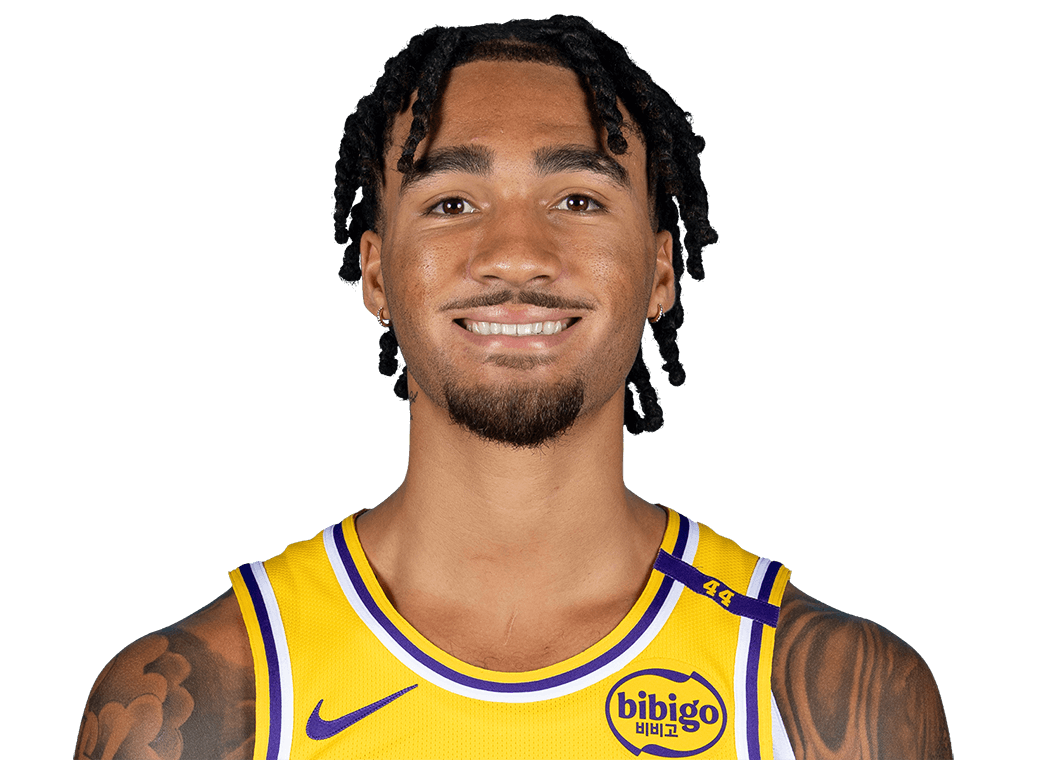READ ALSO..
The judgments, memes and mockery ramped up immediately, increasing in volume and intensity, heightening in vitriol. It always seems to be this way with Russell Wilson, a quarterback for whom “divisive” is at once fair and incomplete. There were jokes; so-so-so many jokes.
About plane workouts. General cheesiness. Press conferences with fortune cookies masked as answers. Age. Decline. A lack of self-awareness. A history of self-inflicted wounds. Comparisons to O.J. Simpson’s run with the “Broncos” – better, some said, than Wilson’s failed two-year tenure. About the … worst trade in NFL history. There were even Crying Jordan memes.
“Russell Wilson” trended on Twitter last week. So did “Russell Wilson sucks.”
Text messages barraged those of us who’ve written about Wilson over the years, especially anyone who has written about him critically. Many that landed on my iPhone wondered if the Denver Broncos releasing Wilson might prompt a celebration of sorts. After years of being described as “anti” Wilson, a hater, fake news, several people asked about vindication, being “right.”
But those notions, fair as they were to raise, also missed the larger point.
Can’t we be nicer to Wilson? Or, how about, kinder in general? Especially in sports.
See, the general football viewing public has always gotten Wilson wrong, pushing him, his career and how both are viewed toward opposite extremes.
He entered pro football as an above-average NFL quarterback. He won with athleticism, verve, creativity, instinct. He could throw. He could move. He could win. All are true.

If surrounded by the right teammates – like, say, a defense stuffed with talented players – Wilson was capable enough to win a Super Bowl and nearly repeat. Also true.
He made mistakes and came with limitations. Wasn’t the tallest. Wasn’t, as the NFL became a league of precision in the passing game, the most accurate. He could divide locker rooms, like in Seattle, when a dynasty nearly formed only to unravel in sudden and spectacular fashion.
Many teammates didn’t view him as authentic, didn’t buy the clichés turned into T-shirts and marketing heaped on top of marketing, everything arranged neatly, takeaways aligned with moments that felt forced, that screamed, “This is me! I’m doing it!” True, too, all of it.
That should be enough, no? To view Wilson, historically, through a fair and nuanced lens. As a lock for the Seahawks’ ring of honor – but not a Hall of Fame candidate, barring another late-career twist. As an elite player who finished fourth or better in Offensive Player of the Year voting in four separate seasons.
And as an elite player who often blamed coaches, offensive linemen and other teammates whenever seasons spiraled. As an offensive architect who drew up 39 game-winning drives and embarked upon 31 fourth-quarter comebacks. And as a quarterback who sometimes sunk his team into deficits, necessitating all the late heroics.
Why must there always be more to evaluating him? Why morph him into an NFL Rorschach test-slash-QB who can lead even somewhat reasonable humans into debating his career more like a referendum on the apocalypse?
Wilson, by any rational measure, has far exceeded any expectations that accompanied Seattle’s third-round selection of him in the 2012 draft. His best years, though, were never going to last forever, due to the nature of how he has always played. That notion applies to most NFL players. But it applies to few more than him. Wilson is 5’11”. He did misfire on occasion. His most formidable opponent – miles accumulated – always guaranteed that he would slow, which always meant that throwing from the pocket and overall accuracy would become more important over time.
In exceeding expectations, Wilson created new ones, higher ones. He partook in the elevation of them, lacing interviews with grandiose ambitions, all-time great stuff, the sentiments in the neighborhood of typical for signal callers who win Super Bowls.
And yet, those same sentiments were sure to be swatted down by Wilson “haters” as less believable from him. He was a human being who didn’t appear to view himself as one, who preferred to be thought of as super-human, hunter of impossible feats, shaper of all narratives.
Since that often came across as forced, every sentiment studied and shaped with great care, all the leaking from his camp behind the scenes, the human part of Wilson became less and less obvious. Again, partly by his own design.
In Washington, Kirk Cousins was celebrated for his “office” in the team facility. In Denver, Wilson was vilified for the same. In that Mile High City, Peyton Manning was celebrated as a family man when he brought his kids to training camp. In the exact same place, Wilson was thrashed for the same. He never seemed to catch typical slack in the cesspool of modern public opinion. He also never seemed to best position himself for understanding, empathy, the human stuff.

Wilson was a champion in his second season as a pro, helping the Seahawks defeat the Broncos in Super Bowl XLVIII.
Matthew Emmons/USA TODAY Sports
Wilson is all those things, all at once. None of that changes the facts, whether positive, negative or somewhere on the vast spectrum in between. Wilson made nine Pro Bowls in 10 seasons in Seattle. But in 2022, he wanted out, wanted to assume more responsibility, wanted say over personnel, wanted control; he wanted, ostensibly, more credit. He vowed to win more than one Super Bowl with the Broncos. True.
That trade now ranks among the worst in NFL history. Also true. Impossible to ignore or dismiss or reason away. Denver guaranteed Wilson $124 million – for 11 wins in 30 starts over two miserable, controversial seasons. The Broncos didn’t make the playoffs in either campaign. They also traded three players and four first- or second-round draft picks to obtain Wilson in the first place. Nathaniel Hackett became the scapegoat for Wilson’s struggles in that first season with the Broncos, including the worst completion percentage (60.5) and touchdown tally (16) of his career. But then Sean Payton, as respected a quarterback developer as there is in the NFL, came out of retirement, crushed Hackett on Wilson’s behalf and proceeded to find out that haters … gonna make some good points.
By the end of 2023, coach and quarterback were seen arguing on the sideline. Wilson was benched – and his benching is being investigated by the NFL Players Association. Nobody won anything. Not games. Not in shaping rosters or legacies. The Broncos are cash poor, salary capped and without critical draft capital. They released Justin Simmons, one of the league’s best safeties, just last week. And they will be forced to make similar decisions for years, owing to the botched trade and its associated costs.
That, right there, is the central problem, in both for-Wilson and with-Wilson senses. He cast himself as a legend, as something more, even, than a franchise quarterback; as, potentially, an all-time great. Denver paid him per the role he gave himself. Together, they made the worst kind of history, ensuring the highest dead-cap money figure in NFL history – a full $85 million paid to Wilson to not play for the franchise that saw him as its savior only two years ago.
The statement Broncos officials released requires a translation. “We thank Russell for his contributions and dedication …” means we must say something nice. “We are focused on building the strongest team possible for the 2024 season and beyond …” equates to but trading for him makes that all but impossible. And “will have the flexibility to get better through the draft and free agency …” becomes unlike with him here.
What the team didn’t say spoke louder. Of course, Denver allowed Wilson to begin negotiating with other teams ahead of the legal tampering period. The Broncos understand that any franchise can sign him to a one-off deal at $1.2 million. They understand that they’ll still owe him $39 million for next season – and $50 million for 2025. That’s the cost of moving on, whether Wilson lands in Pittsburgh (reportedly his first visit) or with a team in need of a quarterback like Atlanta.
Pittsburgh makes a lot of sense, recalling Wilson’s early Seattle tenure – strong defense, elite coach, plenty of offensive weaponry, powerful run game, youthful playoff team. Regardless of what happens moving forward, though, Wilson doesn’t suck. He’s not Patrick Mahomes. More accurately, he lands somewhere, like most quarterbacks, between the typical extremes.
None of that makes Wilson the piñata he has become. Upon hearing the news, I felt sympathy, more than anything, for him. I tried 10 of his former teammates, to see if they felt similarly. Eight didn’t respond. One didn’t want to say anything. The final former teammate tapped back, “He did it to himself.”
Seems like an accurate (somewhat) and harsh (for sure) take from here. Yes, Wilson, shaper of his own narrative, controller of his own destiny, lost control of the story he planned to tell the world. But that actually makes him what would have helped most in the first place: more human.



